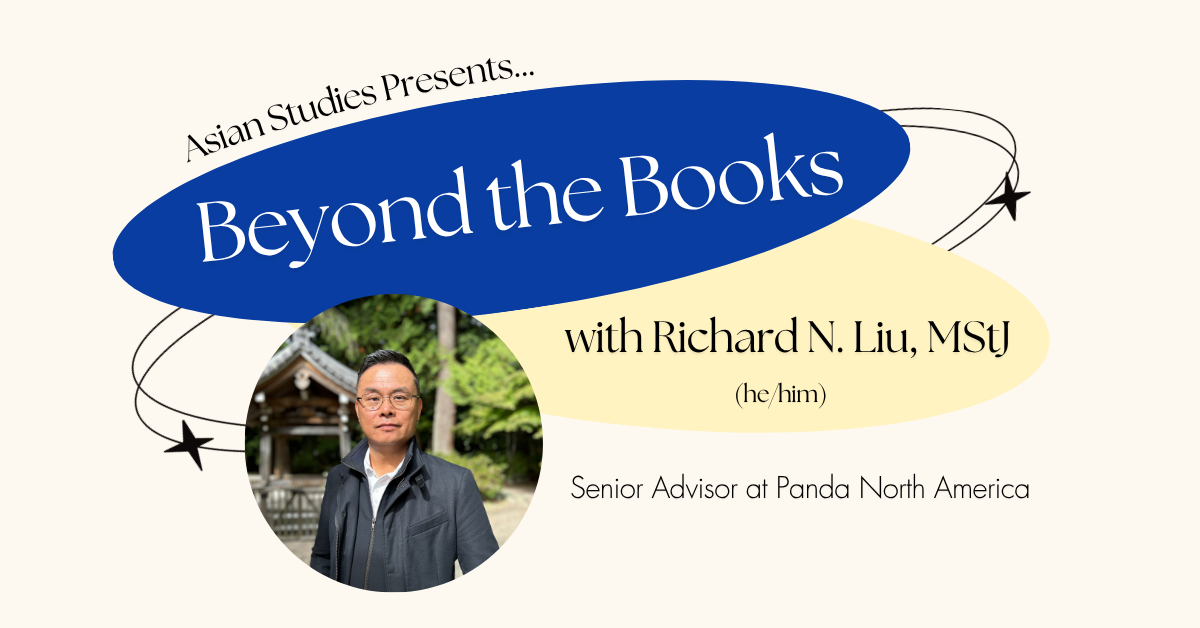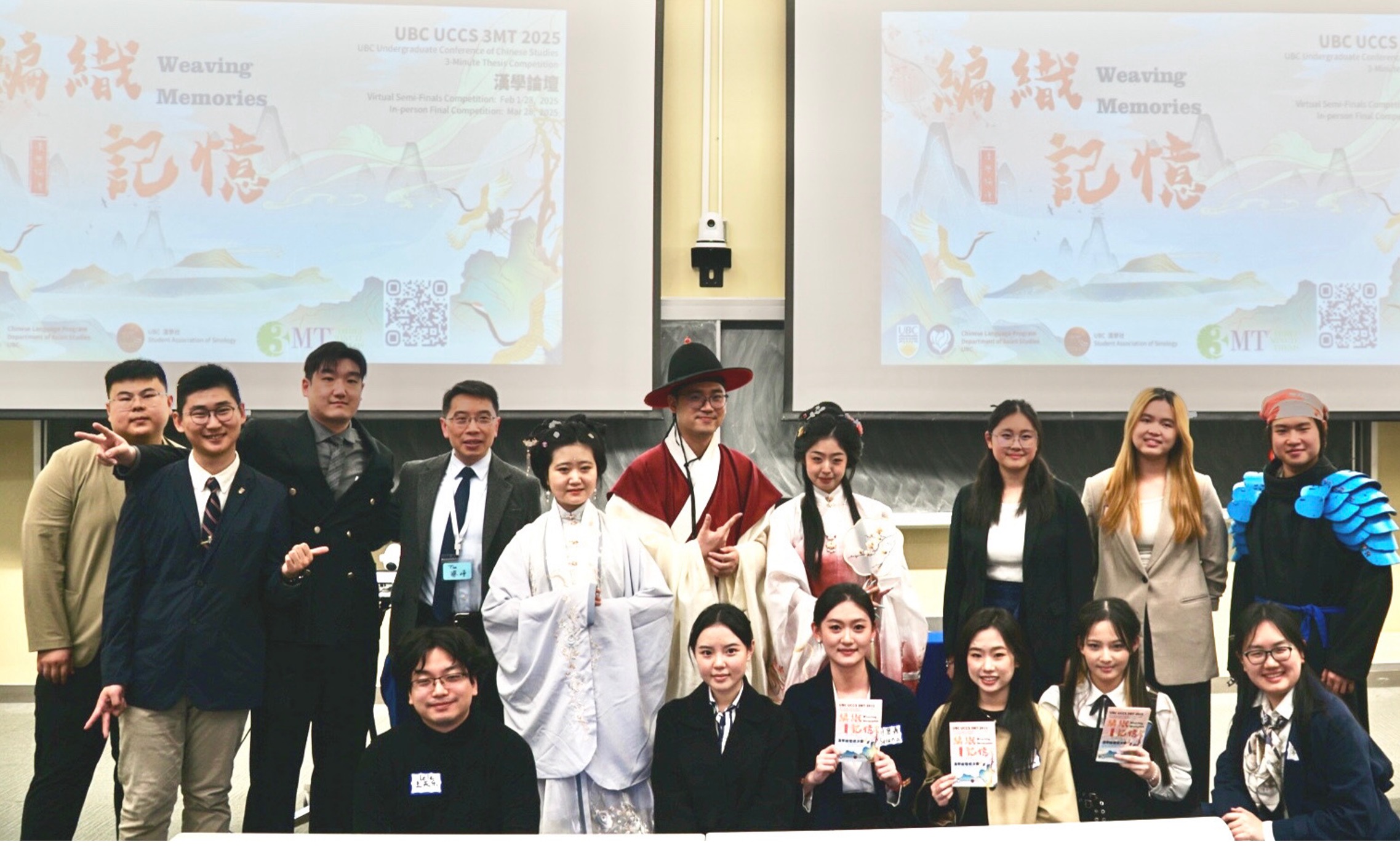On Oct 25 a symposium with the theme “Voices of Kakehashi in Multicultural Canada: Transcultural and Intercultural Experiences” was held in the Asian Centre. The event was sponsored by our department and was organized by the Voices of Kakehashi Committee, chaired by Professor Hiroko Noro from the University of Victoria, with members from local Japanese language schools. Kakehashi is a term that literally means “bridge across.” The word was made famous by Inazo Nitobe in his widely known quote: “Negawaku wa ware Taiheiyoo no kakehashi to naran”. Kakehashi is used as a metaphor to refer to people who bridge cultures. Inspired by this powerful symbol and its creator, Inazo Nitobe, the symposium brought together Japanese Canadians who are involved in various kinds of intercultural/bridging works in their respective fields to share their voices and experiences.
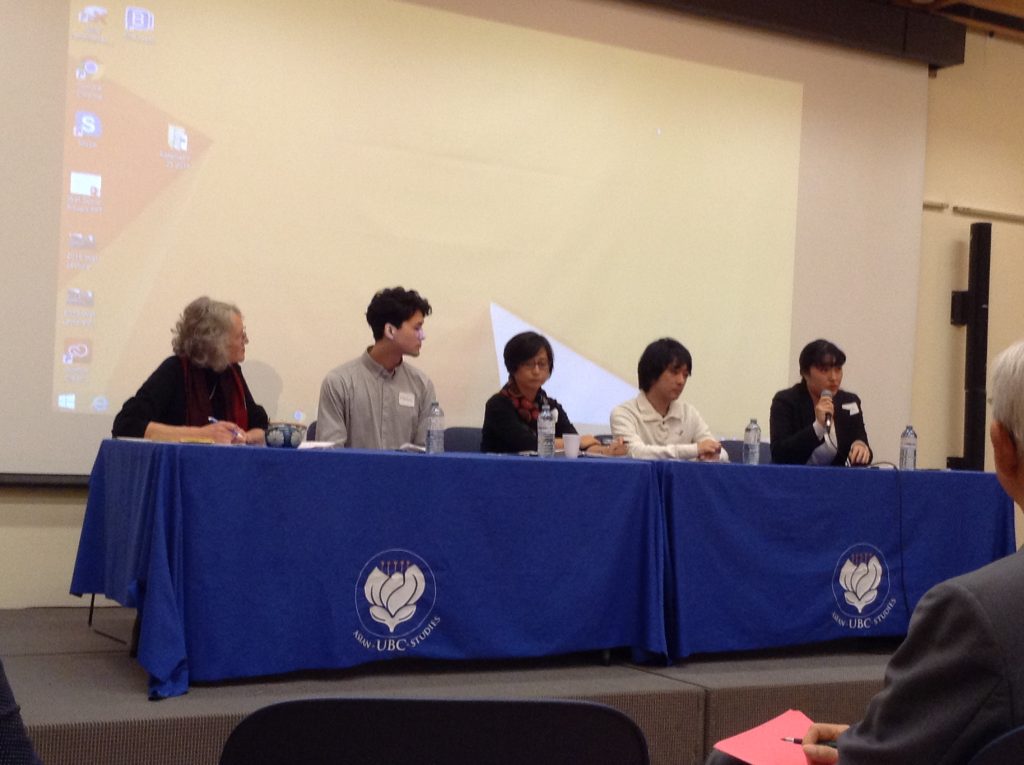

Panel discussion
Our own Professor Emeritus Matsuo Soga, who himself is a role model of such a symbol, was invited to come from Japan by the organizers to serve as one of the keynote speakers. The title of his keynote speech was “For Developing Students’ Communication Abilities.” Professor Soga came to North America to pursue his graduate studies in Linguistics in the ’50s and taught in our department from 1971 to 1992. During his time at UBC the Japanese language program grew substantially, thanks to his tireless work. He was also the mentor and advisor for the local Japanese heritage school teachers, and helped them establish the Japanese Language Teachers Association (JALTA) which to this date still organizes annual teachers’ workshops. At the provincial, national and international level, he was also active in promoting Japanese language education, including becoming one of the founders in the ’70s of the prestigious Middlebury College Summer Japanese Language Program, where language learning is combined with immersion in the culture. After leaving UBC, Professor Soga was invited to established new undergraduate and graduate programs in Japanese language teaching and Japanese Linguistics at Nanzan University and Nagoya University of Foreign Studies in Japan. Numerous former students of Professor Soga now work as language teachers on both sides of the Pacific Ocean, all contributing greatly not only to the field of Japanese language teaching, but also to the promotion of intercultural communication and understanding.
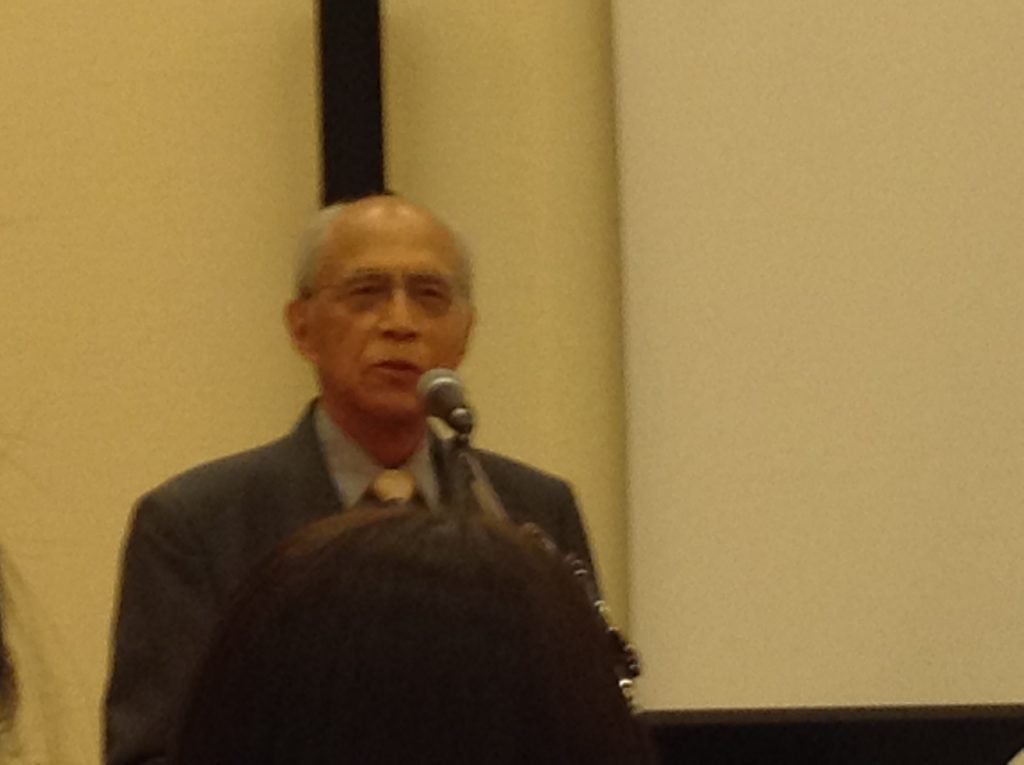

Keynote speech with Prof Soga
A good example is one of our own alumna Stacia Johnson, who attended the symposium and had a very happy reunion with Professor Soga. Stacia was in Professor Soga’s beginner and intermediate classes in 1988 and 1989, and she has fond memories of his classes and her classmates. Her subsequent one-year exchange at Tezukayama University instilled in her a life-long fascination with the language and culture of Japan. After her graduation in 1993, Stacia taught Japanese for the Richmond School District for 10 years before she moved to her current position in the Vancouver Island North School District. Currently Stacia also serves as the Japanese language representative for the British Columbia Association of Modern Language Teachers (BCAMLT). She is also a member of the Port Hardy Numata Sister City Twinning Committee, and has organized student trips to Wakayama and Numata. According to Stacia, “events like these highlight the important work of language teachers in instilling an appreciation for people who live and work between cultures. By being a language teacher and by continuing my own love of life-long language learning (working on French, Spanish, and Kwak’wala acquisition in recent years), I hope I have inspired some of my own students to continue with language study. I truly believe the world would be a better place if each of us spoke more than one language and we worked at bridging people through the learning of languages and cultures.”
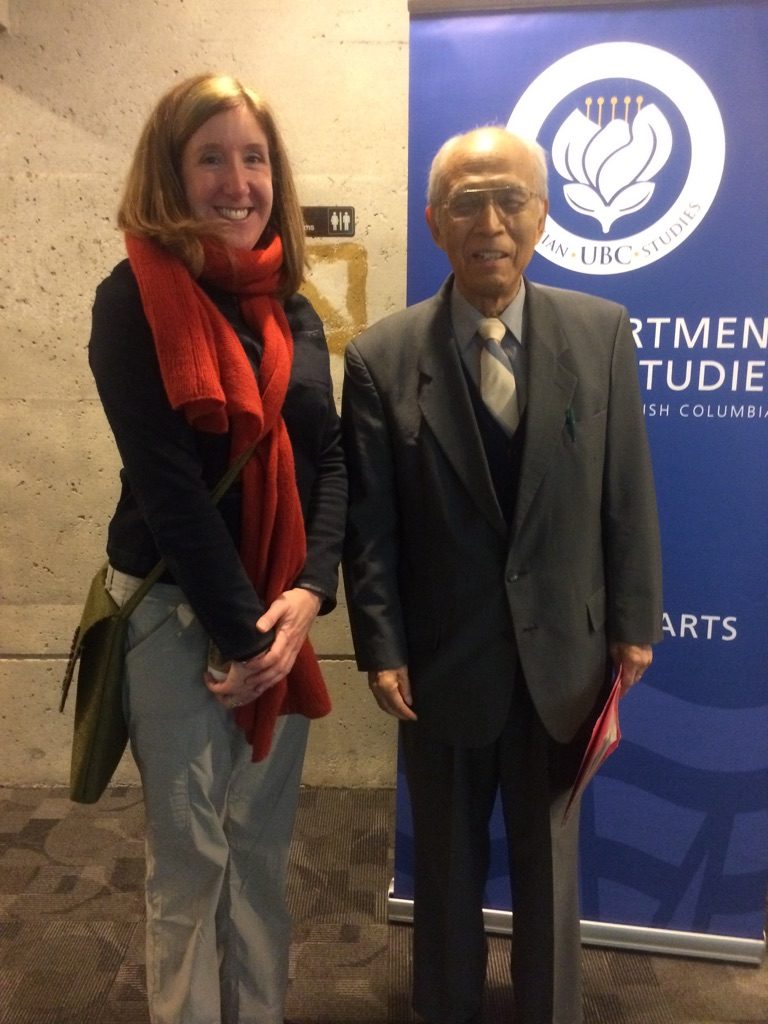

We believe that among our alumni there are other students like Stacia who continue to pursue their studies of languages and cultures long after they leave the university and, more importantly, work towards bridging people through the learning of languages and cultures. We look forward to hearing more voices of Kakekahi.
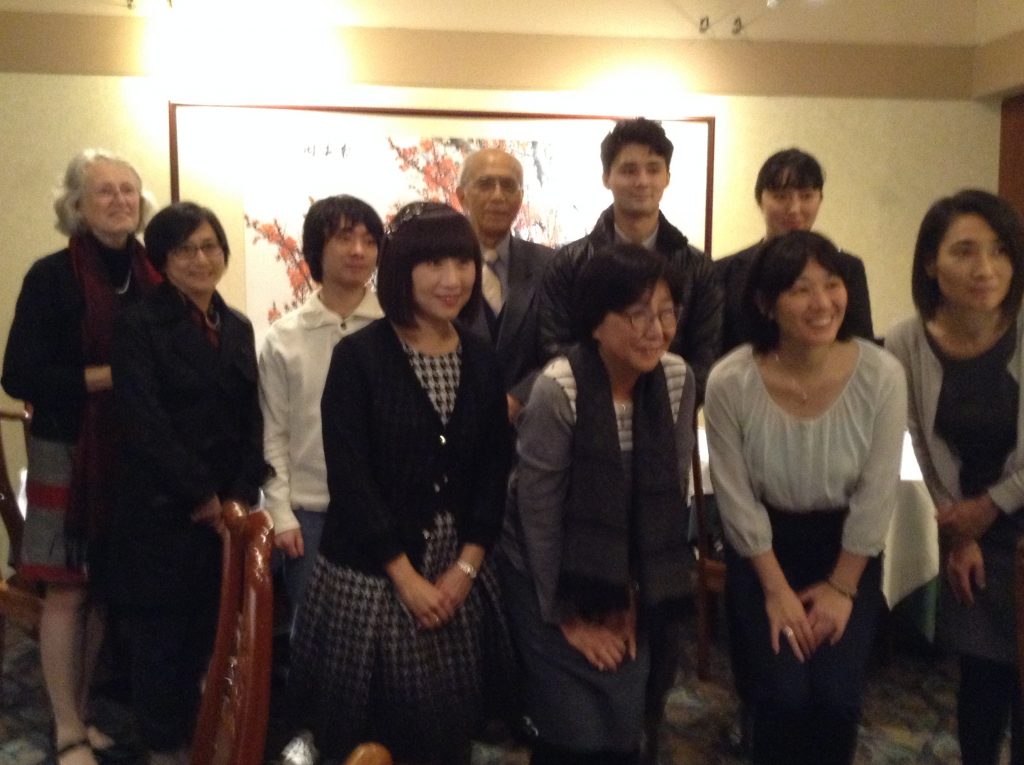

Prof Soga with panelists and organizers
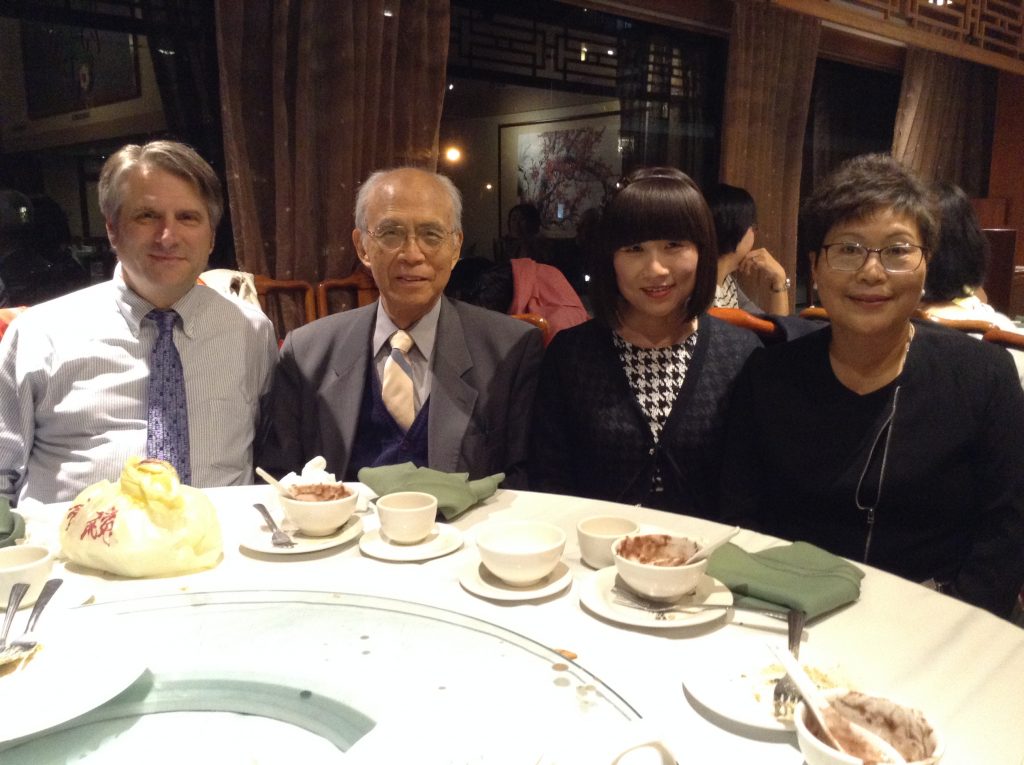

Diner Reception. From left to right: Ross King, Prof Soga, Rebecca Chau & Kasuko Trudel

